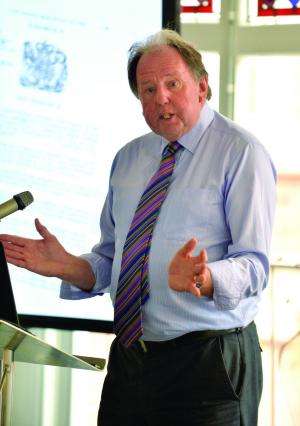England's children's social care review must have credibility

Published by Professional Social Work magazine, 16 February, 2021
The head of what will probably become known as the ’MacAlister Review’ has sought to parry two wide-spread concerns that he is not independent of government and that he does not have the experience or expertise to lead such a major fundamental "once-in-a-lifetime" opportunity to re-set and re-shape social care services for children and families.
He also seeks to claim parity of credibility with those who have been paid to work within children’s social care or received grants to research the nature and impact of services. His experience is limited to a very short career as a teacher and then as an entrepreneur setting up a social work training company.
A bit of personal background… I grew up on a council housing estate within a strong and caring community but where near neighbours had children taken into care, where some had lives immersed in drug peddling and addiction, and which later had a moment of national fame as the first neighbourhood to have an area curfew imposed on children and young people who had to be indoors by 9pm.
I now have over 50 years experience of working within children’s social work and children’s social services, including 12 years of direct face-to-face work as a social worker, group worker, and neighbourhood youth worker alongside children, young people and their families.
Whilst working as a social services frontline team manager I completed a PhD based on getting adolescents to tell me what they thought about their social workers. As a social services director for 14 years every eight weeks or so I, along with senior councillors, would meet in the evening and at weekends, and listen and talk with, between about 20-100 children in care at events and gatherings arranged by our children’s rights officer, getting to know 30-40 of the children well over time.
The research I undertook as a social work professor for eight years included, for example, meeting in their homes with young people and parents involved with a ‘troubled families’ programme to gather their experiences and views, and meeting frontline practitioners and managers to find out and report how serious case reviews impacted on them.
I have also chaired a local safeguarding children board for a major city and between 2010 and 2016 spent two days each month for about two years in each of five local authority areas working with them on how to improve their poorly rated services for children. In all of these roles listening to children and families, and staying close to frontline practitioners, has been fundamental and crucial to shaping my understanding and being grounded.
I am NOT pitching to undertake the review! Indeed, the review should not be within the remit or realm of any single individual. So why do I refer to my experience? It is because it is not untypical of those whose working lives have been embedded in working alongside children and families.
There are those who deserve tremendous recognition and credit for year-on-year staying immersed as practitioners and frontline managers in the pain and distress of children and families in crisis, which is increasing amongst the deprivation and poverty that has intensified by over the past ten years. And for many of those in children’s social care management, education and research their roots are still set within their practice experience and its value base.
Yes, we get paid for our work, but have not and do not see funding and influence from international accountancy firms and from hedge funds and investment bankers with wealth sheltered in tax havens as welcome in children’s social care, with their anticipation that this might be a route to more money-making. The same cannot be said for Frontline, the fast-track graduate training programme founded by Josh MacAlister, from which he has stepped down to lead the review.
We also may have a fleeting thought questioning whether those government advisors, such as Martin Narey, Julian Le Grand and now MacAlister, with no track record of working alongside children and families in children’s social care, are best placed to be the shapers of the future and the heralds of a brave new world. And we may look with a little side-ways glance as they cast themselves in the role of gathering, reporting and presenting the expertise and wisdom of those who have personal experience of children’s social care.
It is absolutely awful that almost a thousand people with expertise and wisdom based on being care experienced have been turned down when they offered and sought to contribute to the review. How crass that MacAlister and the civil servants working beside him had not anticipated the distress which has been caused and the anger this rejection has generated. Their lack of understanding, sensitivity and experience has already been exposed.
It would be timely, therefore, for there to be some quick re-thinking about how the review is to be conducted and led so that it has credibility among those with personal and professional experience. There is also an urgency for its independence from the government, which has been the source of many of the difficulties for children and families over the past ten years, to be strengthened.
At the very least it should be a cross-party commissioned review which is widely recognised as being independently undertaken by those with recognised relevant experience and expertise, and with a clear distancing from political control and influence.
Read PSW's analysis of the children's social care review here
Ray Jones is emeritus professor of social work at Kingston University and St George's, University of London
This article is published by Professional Social work magazine which provides a platform for a range of perspectives across the social work sector. It does not necessarily reflect the views of the British Association of Social Workers
